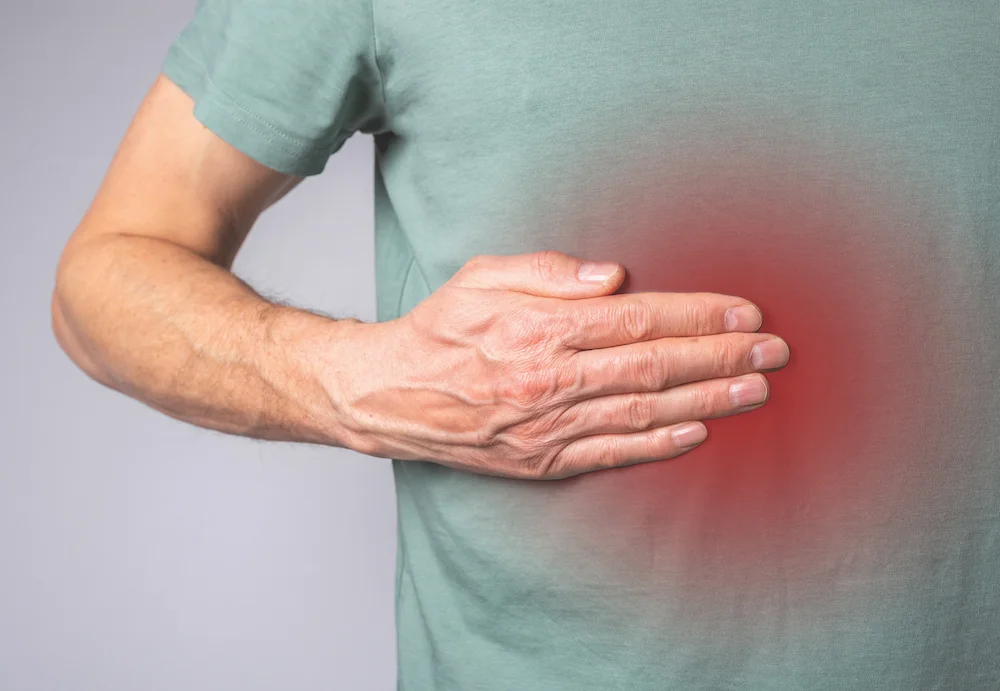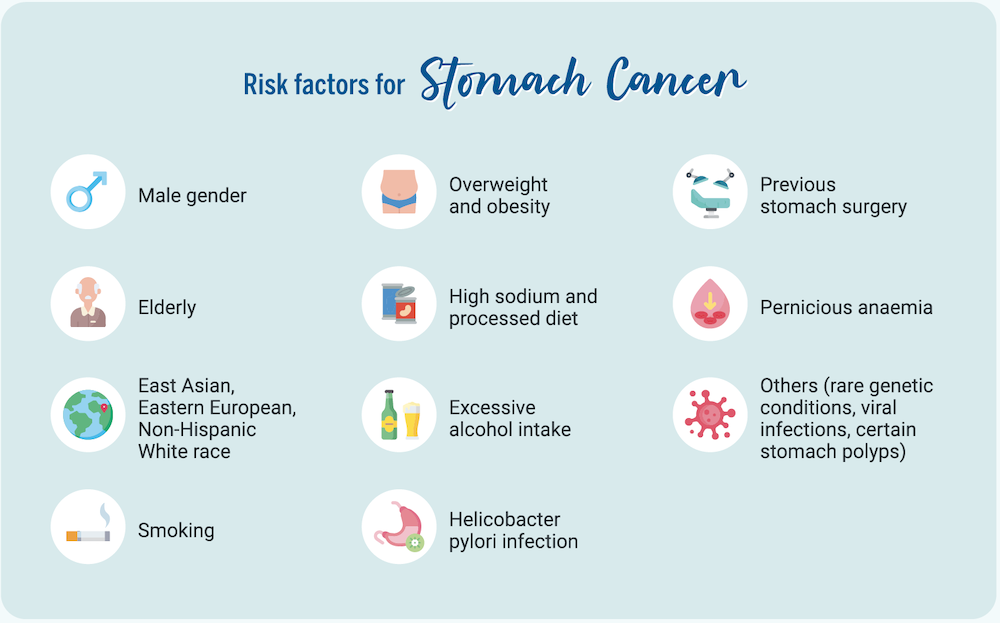Stomach Cancer: The Silent Killer

Stomach cancer is the seventh most common cancer in Singaporean men, and the ninth most common cancer in Singaporean women1. Symptoms do not show until later stages, making this disease ‘a silent killer’ that takes about 700,000 lives globally every year2. Dr Foo Kian Fong shares more.
The stomach is an organ in the gastrointestinal (GI) tract that secretes acid and the pepsin enzyme to digest food. It consists of five parts, namely the cardia, fundus, body, antrum and pylorus. Stomach cancer occurs when cells in the lining of the stomach grow out of control.
There are different types of stomach cancer, including lymphoma, neuroendocrine carcinoma, and gastrointestinal stromal tumours. The most common type of stomach cancer is adenocarcinoma, which accounts for 90–95% of stomach cancers.

Diagnosing stomach cancer
Stomach cancer is a disease that develops slowly over many years. Symptoms typically only present in advanced stages, making early detection difficult.
Stomach cancer is also often discovered late because common symptoms of the disease are generally associated with common ailments such as acid reflux or gastritis. As a result, individuals may not immediately suspect stomach cancer.
Depending on where the cancer starts in the stomach, a patient can experience different symptoms. Common symptoms of stomach cancer include:
- Pain and bloating in the abdomen
- Recurrent vomiting
- Difficulty swallowing
- Loss of weight and appetite
- Vomiting of blood
- Passing of black stools
If you present with any of the above symptoms and suspect you have stomach cancer, see your doctor.
Your doctor will conduct some tests to confirm your diagnosis. These include a gastroscopy (where a ‘telescope’ is passed through the stomach to examine the inner lining of the stomach) and barium studies (an X-ray procedure to examine the GI tract).
After confirming your diagnosis, you will then undergo a CT or PET scan, as well as a diagnostic laparoscopy (where a scope is passed through the tummy to examine the outer lining of the stomach) to determine the stage of the disease.
Managing stomach cancer
The location and stage of the cancer determines the appropriate treatment required to treat the disease. Fortunately, stomach cancer is highly treatable with surgery at its early stages, where the cancer is localised and has not spread.
At intermediate stages, where the cancer has spread to surrounding lymph nodes, surgery with adjuvant chemotherapy is advised for patients.
At advanced stages, where the cancer has spread to distant organs and is not curable, chemotherapy, immunotherapy and occasionally targeted therapy are prescribed to patients.
As with other chronic diseases, prevention is better than cure. There are simple steps you can take to reduce your risk of stomach cancer. Maintaining an ideal weight and undertaking regular exercise, while keeping a healthy diet that is rich in fruits and vegetables, can go a long way in preventing many chronic diseases including stomach cancer.
Reducing alcohol intake and smoking cessation can also help reduce risk of disease. Additionally, drinking green tea can help ward off disease because of the polyphenols the tea naturally contains.
For patients with helicobacter pylori infection of the stomach, taking an antibiotic regimen to eradicate the infection can significantly reduce risk of developing cancer. By maintaining a healthy lifestyle, and raising awareness of the risk factors and symptoms of stomach cancer, you can reduce risk of disease. For individuals who are at higher risk, you may wish to go for regular check-ups including blood tests and a gastroscopy to help detect the disease at early stages where the chance of cure is higher.
1Singapore Cancer Registry Annual Report 2019
2Stomach Cancer Statistics, World Cancer Research Fund, 2020
| POSTED IN | Cancer Treatments |
| TAGS | cancer diagnosis, chemotherapy, immunotherapy, obesity and cancer, stomach cancer, surgery, targeted therapy |
| READ MORE ABOUT | Stomach Cancer |
| PUBLISHED 01 AUGUST 2022 |
